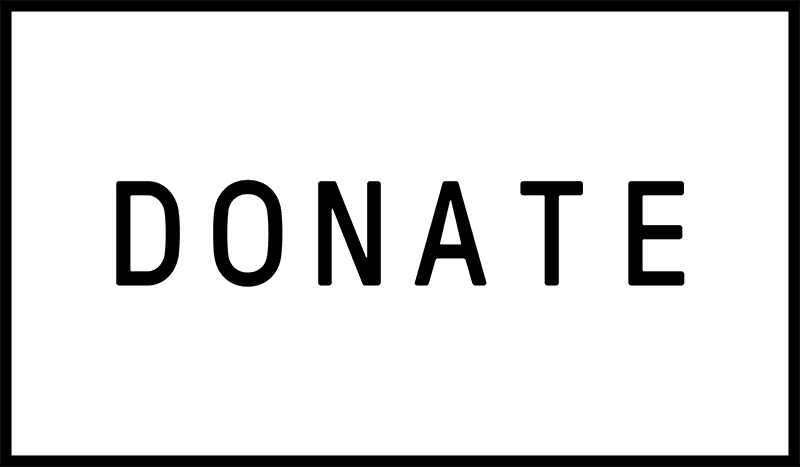Refugee Trans Guest House
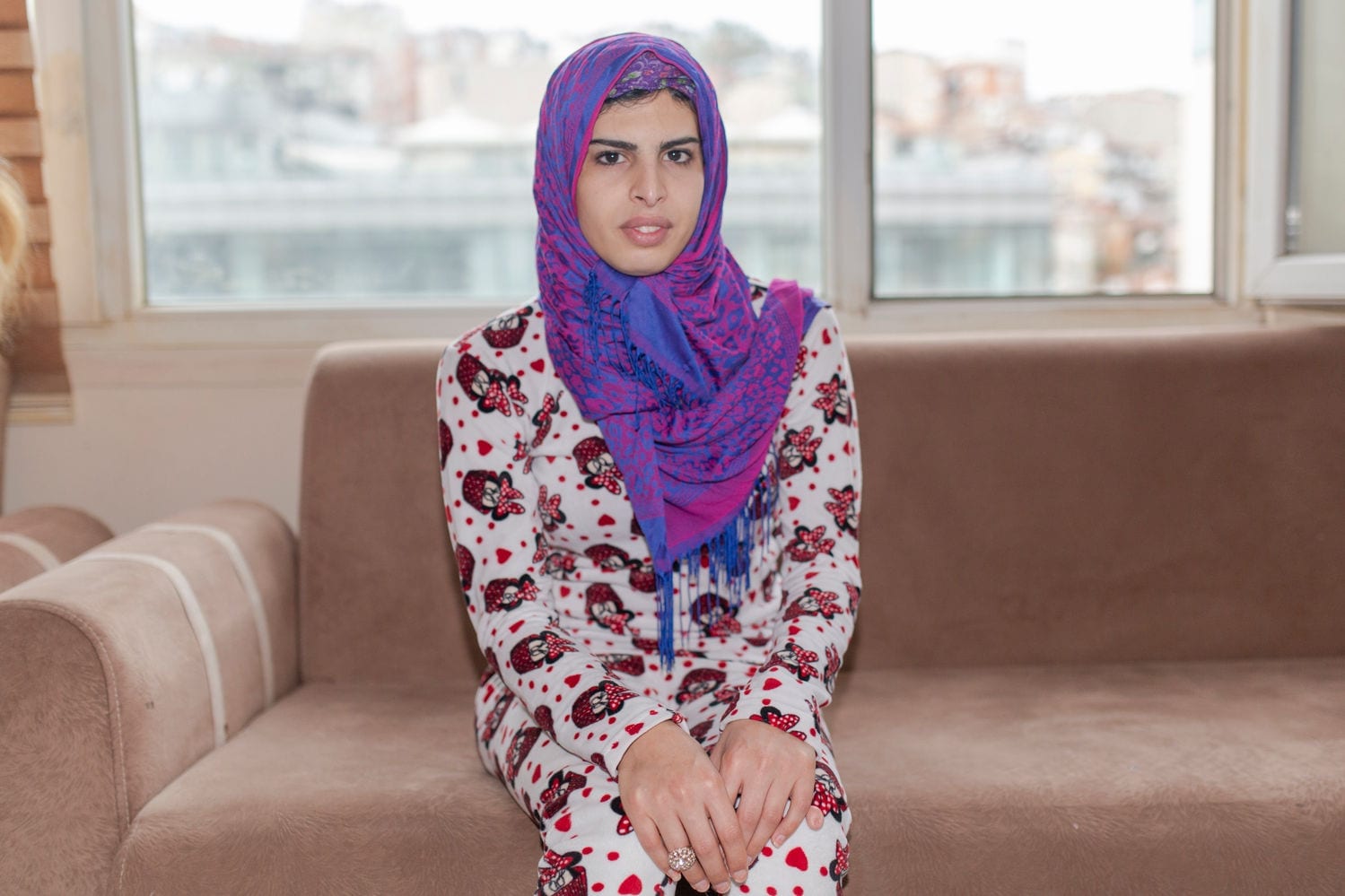
Waar vind je een toevluchtsoord als er in de samenleving geen plaats is voor wie je bent en van wie je houdt als persoon? / Where do you find refuge when there is no place in society for who you are and who you love as a person?
LHBTQ+ vluchtelingen
Het is niet precies bekend hoeveel LHBTQ+ vluchtelingen er in Europa zijn, maar we weten wel dat er 70 landen zijn waar het strafbaar is om homoseksueel te zijn, en dat 11 landen* hier de doodstraf voor kennen. Er zijn veel redenen voor LHBTQ+ personen om elders asiel aan te vragen, maar velen zullen deze informatie niet bekendmaken om zichzelf te beschermen, of ze kunnen om andere redenen asiel aanvragen, zoals oorlog of politieke standpunten. Ze vormen een bijna onzichtbare categorie: om asiel te krijgen op basis van hun seksuele geaardheid of genderstatus moeten LHBTQ+ vluchtelingen aan de autoriteiten bewijzen dat ze queer zijn of vervolging vrezen. Maar het succes van een asielaanvraag hangt grotendeels af van het bestaan van niet-bestaand bewijs.
Veel LHBTQ+ asielzoekers hebben in hun vorige land niet openlijk kunnen leven, waardoor het bijna onmogelijk kan zijn om hun seksualiteit of genderidentiteit te “bewijzen”. Weinig EU-lidstaten hebben officiële richtlijnen voor het interviewen van LHBTQ+ personen, en asielambtenaren hebben vaak verouderde of stereotiepe ideeën over LHBTQ+ identiteiten. In Nederland bieden organisaties als LHBT Asylum Support hulp en advies aan deze kwetsbare groep. Zij melden dat ook hier 85% van de LHBTQ+ vluchtelingen slachtoffer is van discriminatie in Nederlandse asielzoekerscentra.**
* Bron: www.ilga.org
**Bron: https://lgbtasylumsupport.nl
Over de serie
Waar vind je een toevluchtsoord als er in de samenleving geen plaats is voor wie je bent en van wie je houdt als persoon? Deze serie toont een beschutte manier van leven en de impact die dit heeft op de levensweg. Sinds het uitbreken van de burgeroorlog in Syrië hebben miljoenen Syriërs hun toevlucht moeten zoeken in Turkije. Onder deze vluchtelingen bevinden zich LHBTQ+ mensen die door de Turkse staat zijn genegeerd en onderbediend. Met financiële steun uit het buitenland hebben enkele LHBTQ+ gemeenschappen in Turkije een pension geopend om huisvestingsproblemen op te lossen waarmee transgender personen worden geconfronteerd. Dit pension bood onderdak aan tientallen LGBTQIA + mensen uit Turkije en LHBTQ+ vluchtelingen gedurende meerdere jaren. Sommige mensen bleven een paar dagen, anderen jaren. Gezien de homofobe en transfobe druk die transgender vrouwen in Turkije al ervaren, valt het te verwachten dat zij in Turkije ook te maken hebben met discriminatie. Het pension voor hen erg belangrijk plek, waar ze veilig waren. Helaas sloot het in de zomer van 2019 vanwege het stopzetten van de financiële ondersteuning en verhuisden de bewoners met behulp van social media campagnes naar aparte accommodaties. Dit fotografieproject beslaat de laatste maanden voordat het pension sloot.
Over de fotograaf
Şener Yılmaz Aslan doet zijn master fotografie aan de Mimar Sinan Fine Arts University, Istanbul. Binnen zijn fotografiepraktijk richt hij zich voornamelijk op onderwerpen als LGBTQIA + en vrouwenrechten, staatsgeweld, sociale omwentelingen, stedelijke paradoxen en werkroutines. Momenteel studeert hij aan de kunstacademie Aix en Provence in Frankrijk met een uitwisselingsprogramma.
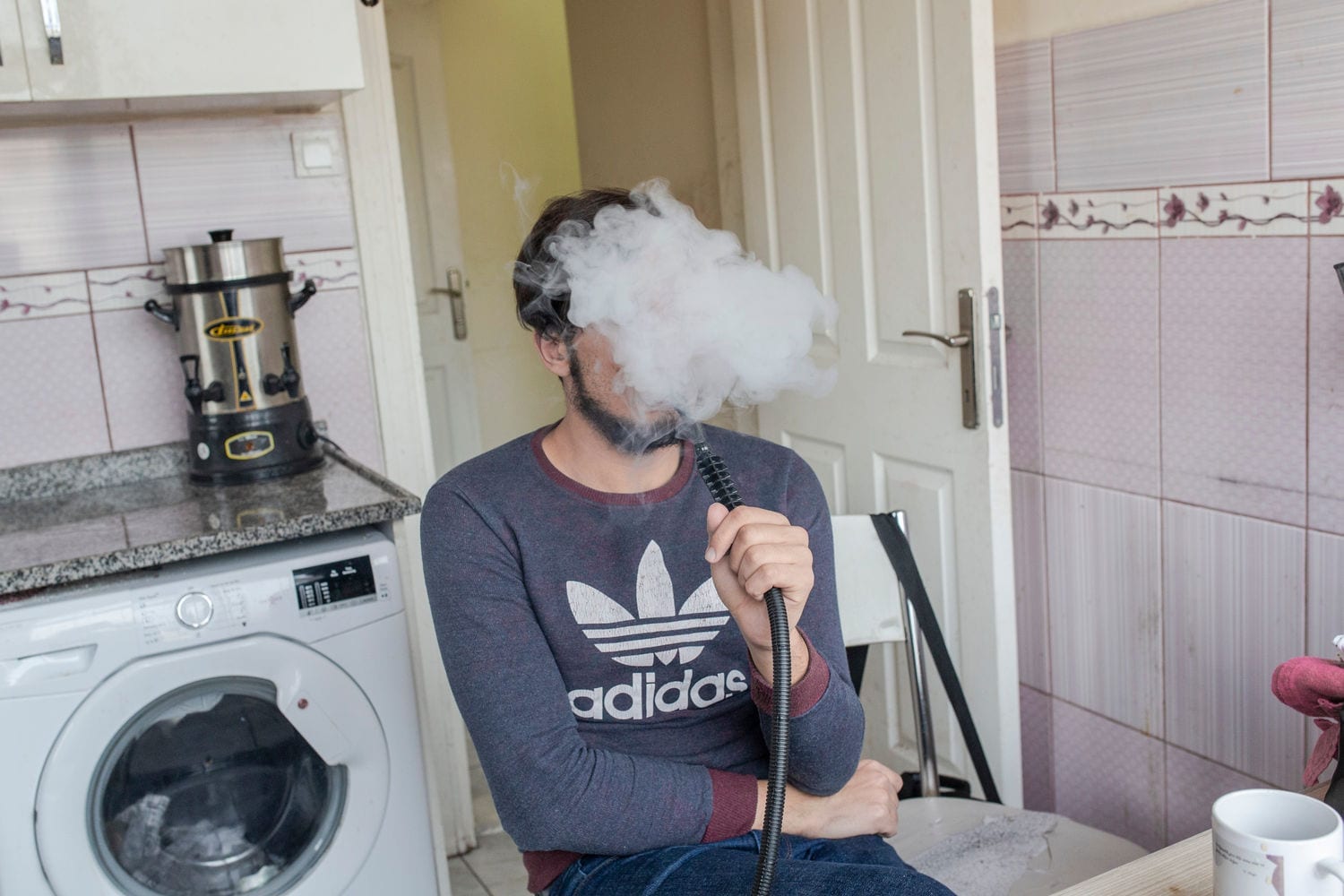
He is smoking a hookah in the kitchen of the guest house. The refuge mostly hosted transgender women, but some gay refugee men who needed somewhere to live have also stayed there.
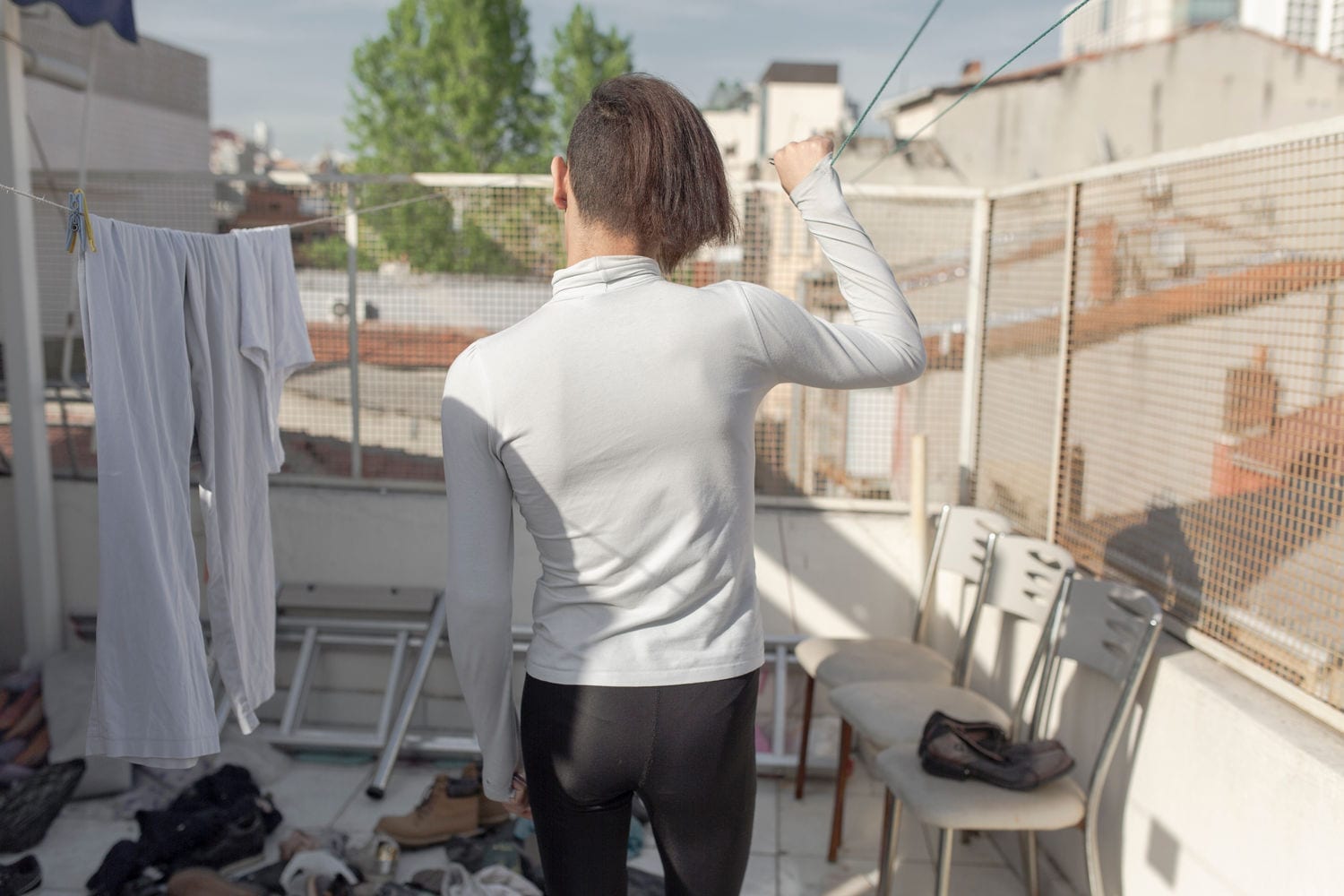
A transgender woman from Syria on the terras of the guest house.
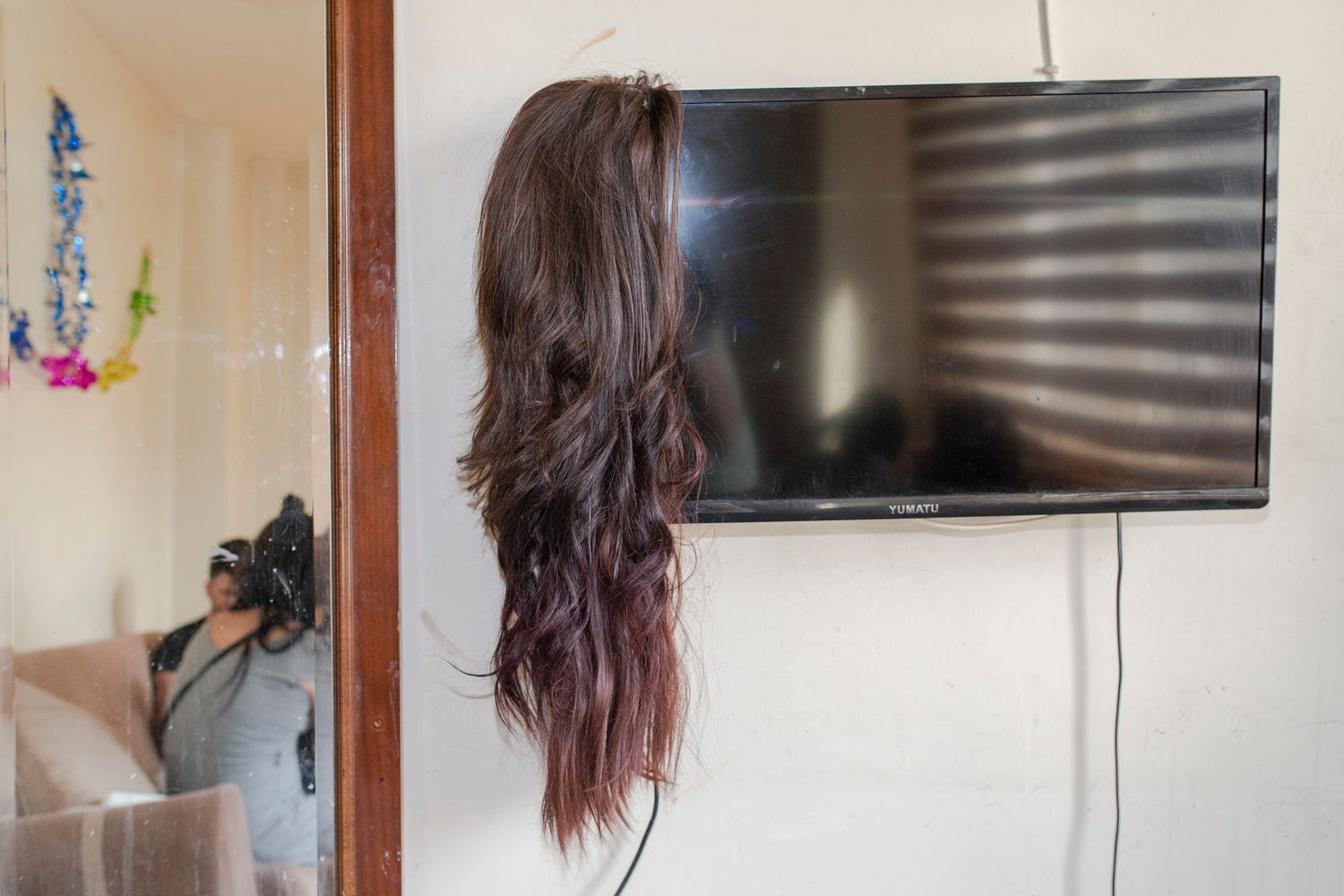
A wig hanging on a television in the living room. Generally the people who have lived in the apartment did not watch television as it showed only Turkish programs, and most of the residents didn’t understand Turkish.
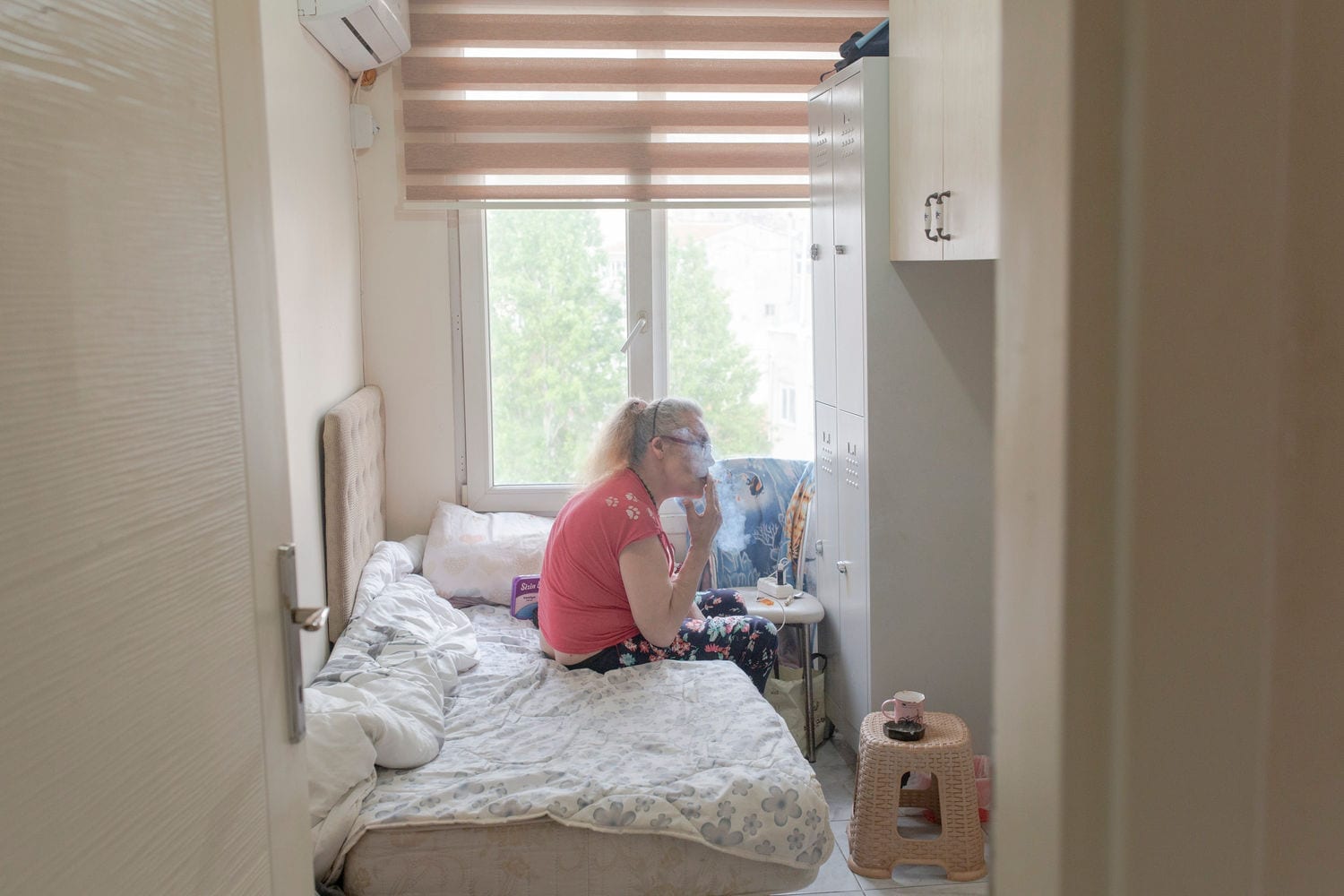
A Turkish transgender woman smokes in her room. Her nick name is Biricik, and she was the only person with a private room in the apartment. She was the oldest person there, and her left arm is disabled. Before refugees moved in, here were only Turkish transgender women in the guest house. Some of them were still living in the house with refugees before it was closed.
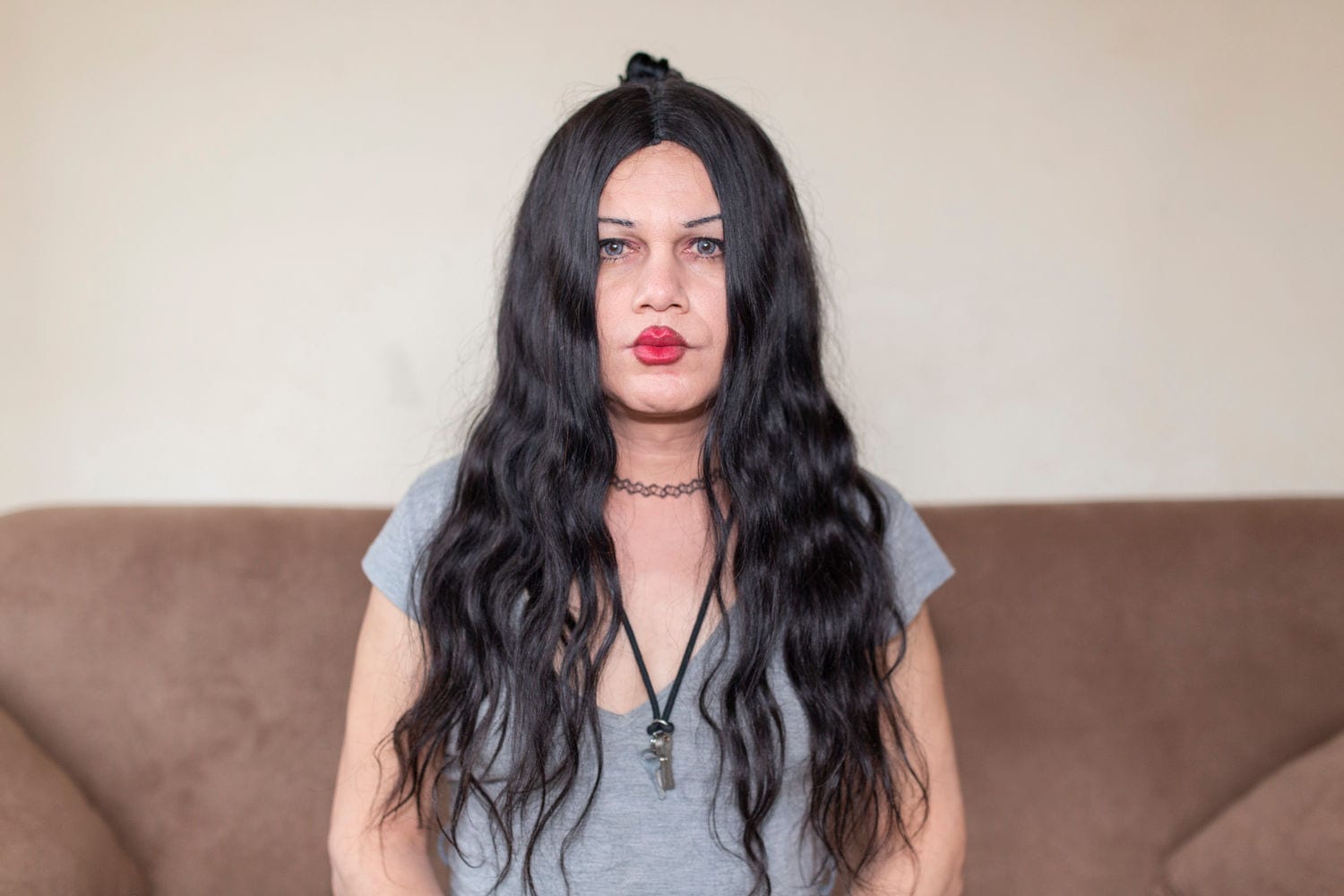
Tira escaped from Syria during the war. She is a painter but she couldn’t do her art in Turkey. She was raped by a man in Turkey, who also stole her passport and wallet. She was trying to prepare her papers and move to Germany or an other country. Most of LGBTQ+ refugees in Turkey don’t want to stay in there because of pressures on them.
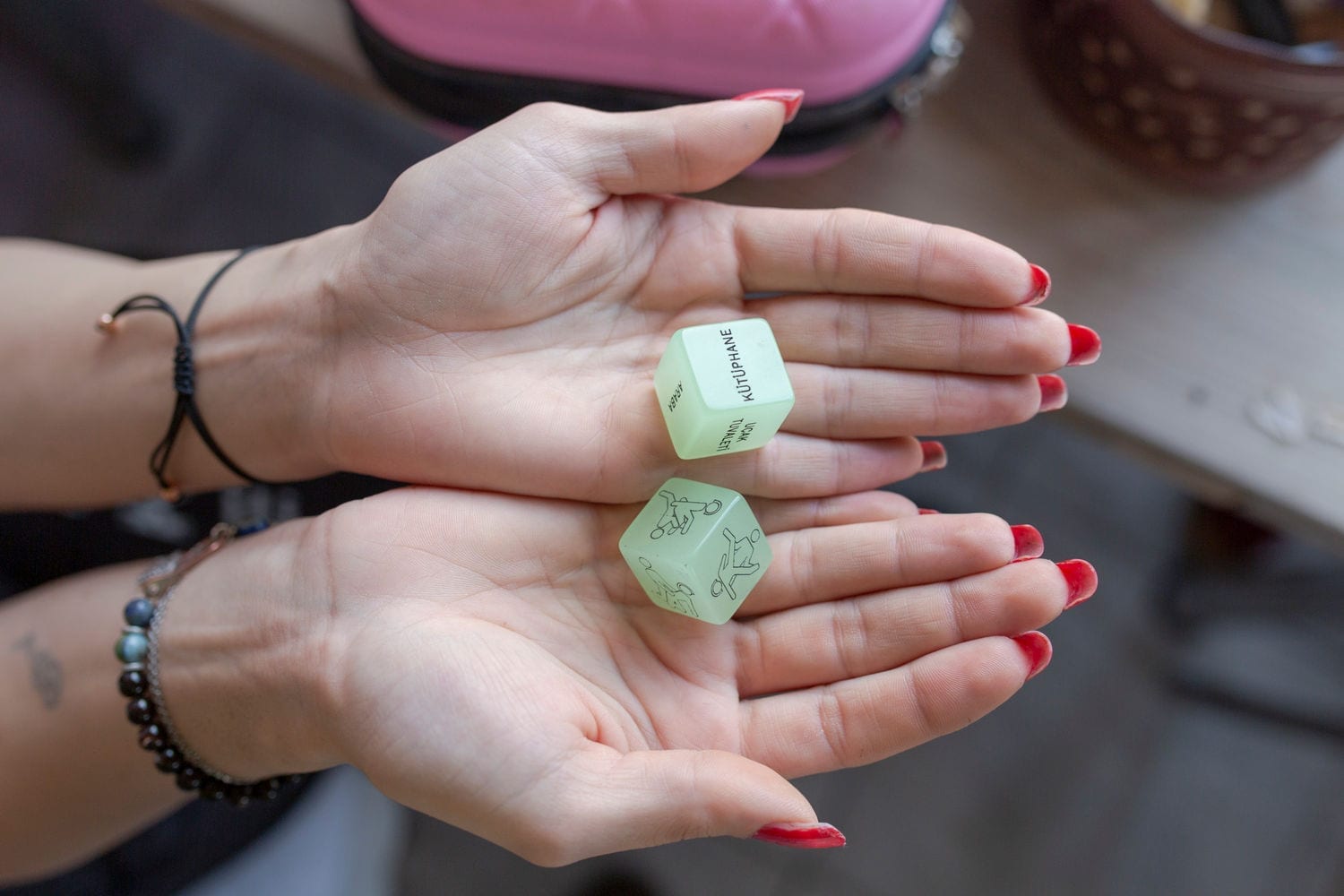
A transgender refugee woman from Syria shows her sex dices in her hands. This game is for fun, before sex.
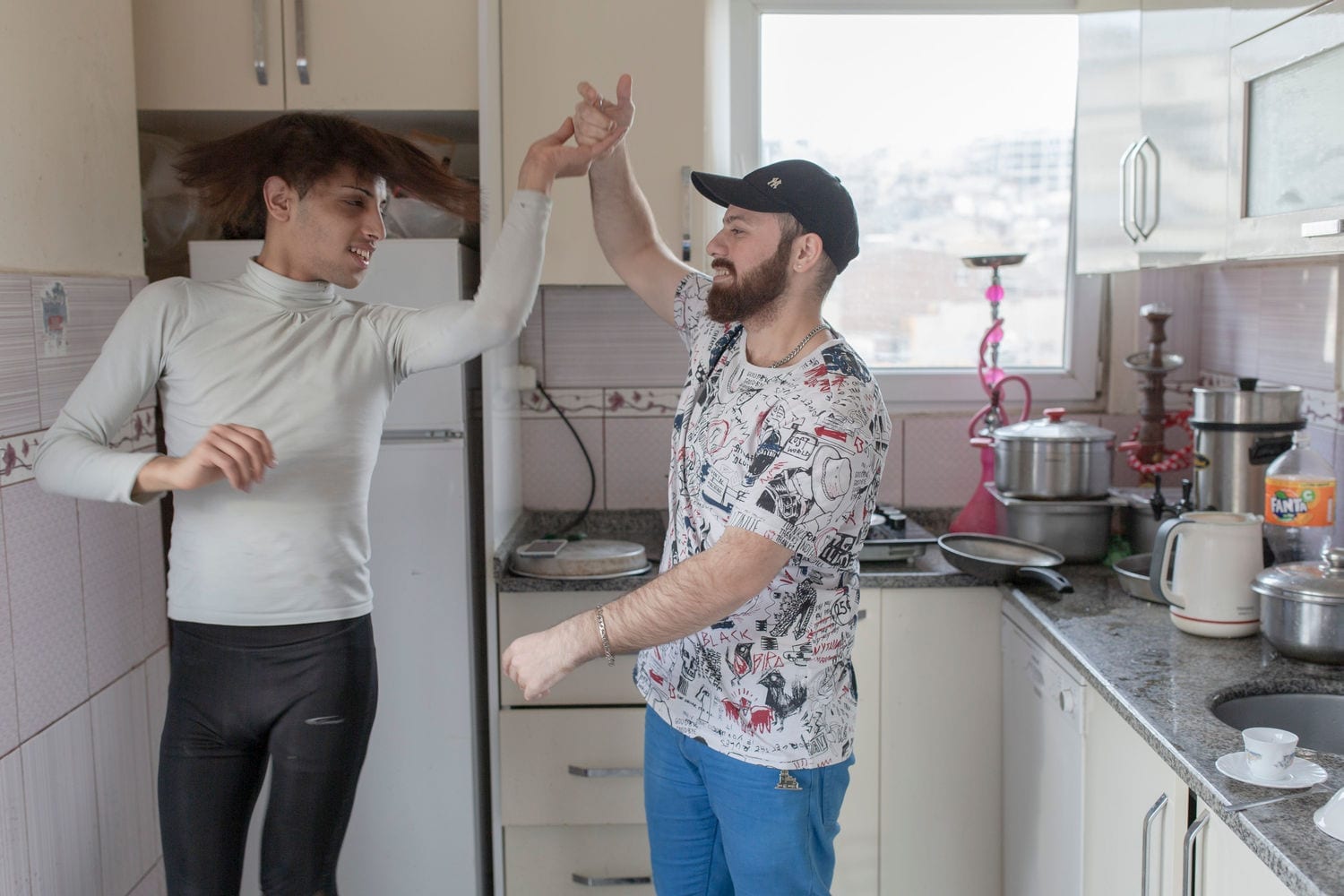
A guy and a transgender woman – both from Syria – are dancing in the kitchen.
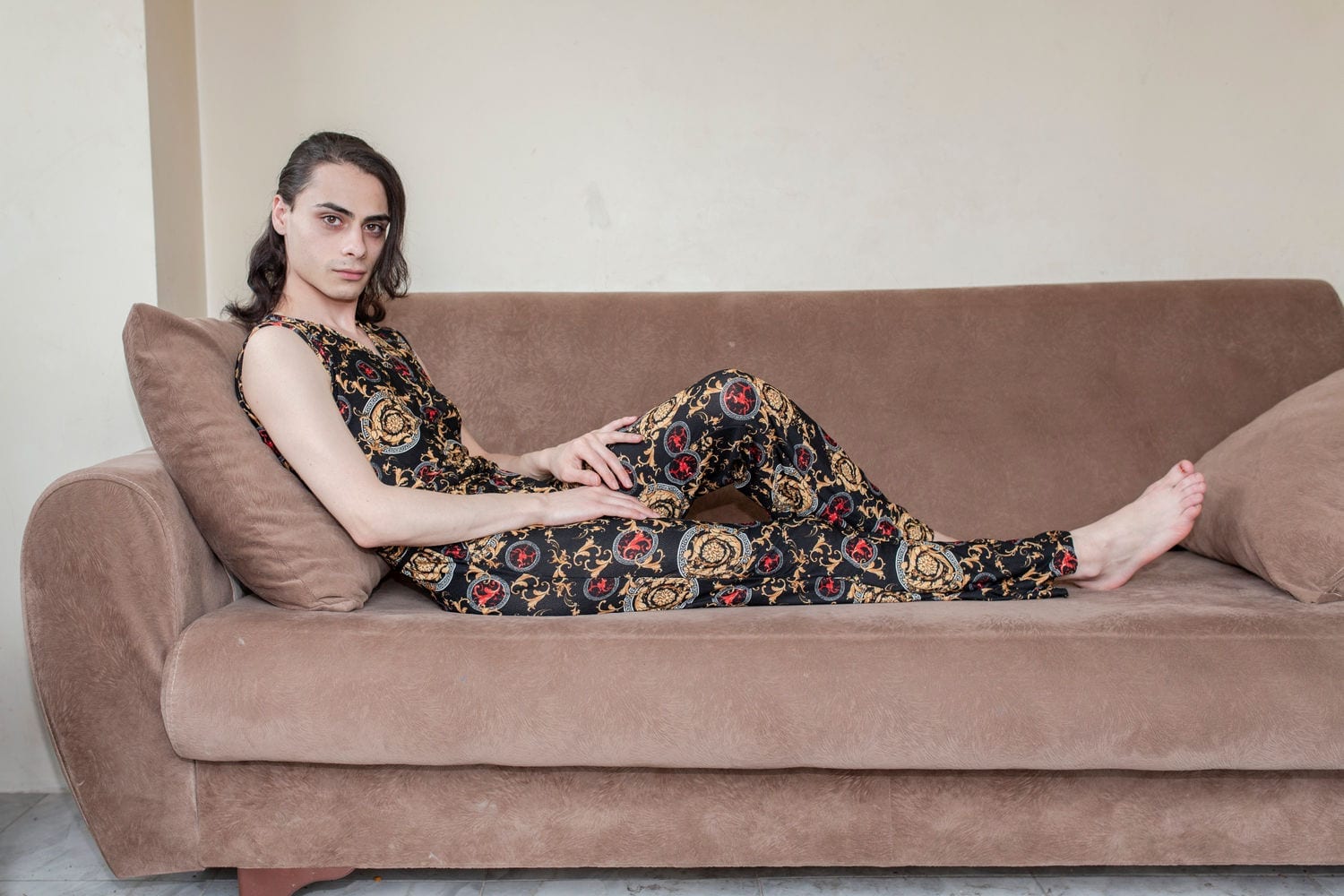
She lays down on a couch in the living room of the guest house and poses for the camera.

She is a transgender woman with Muslim parents in Morocco. She wore a headscarf in her hometown, and sometimes she likes to wear it in Turkey too.
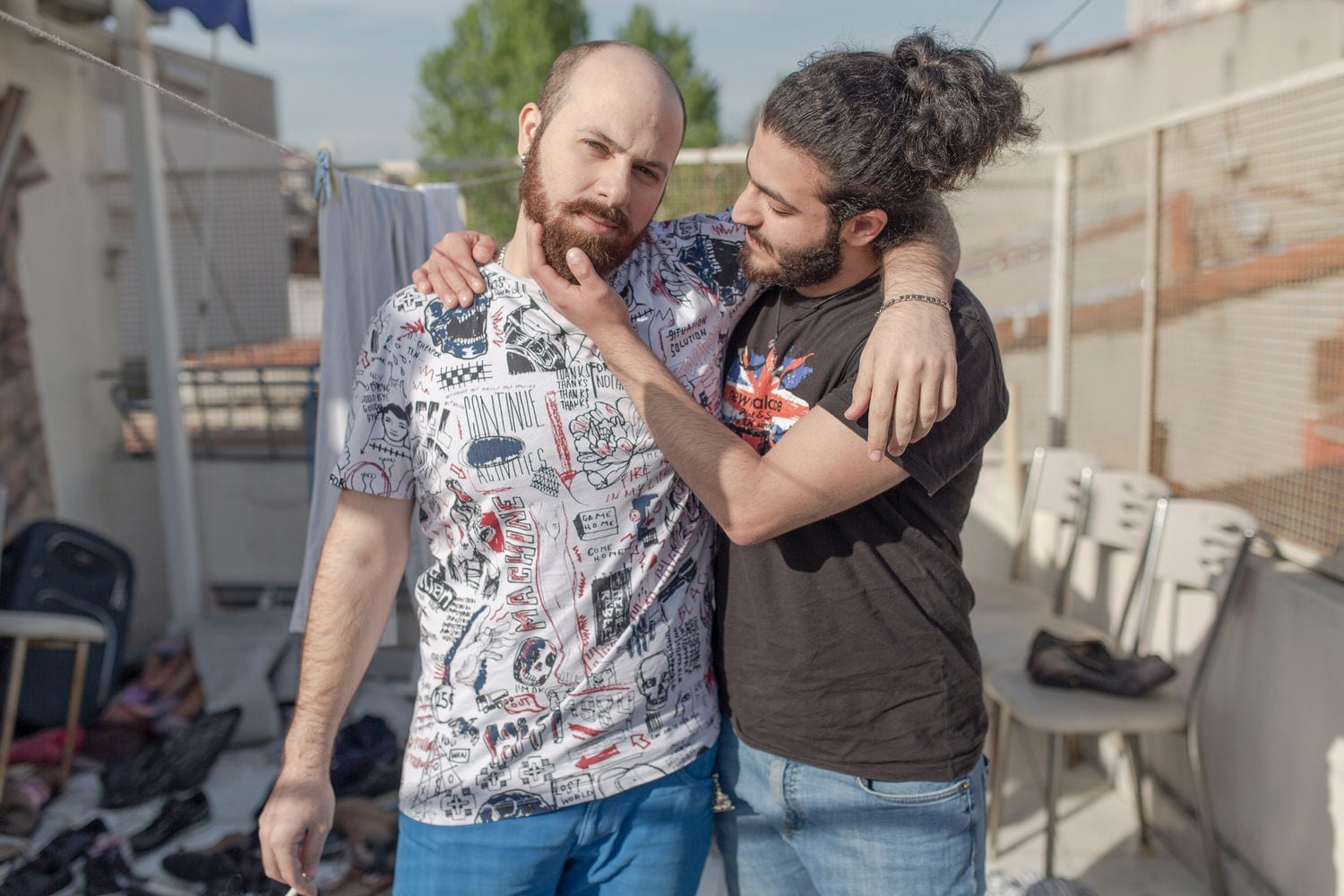
The guest house was mostly for only transgender refugee women, but some gay refugee men who needed accommodation also lived in there.
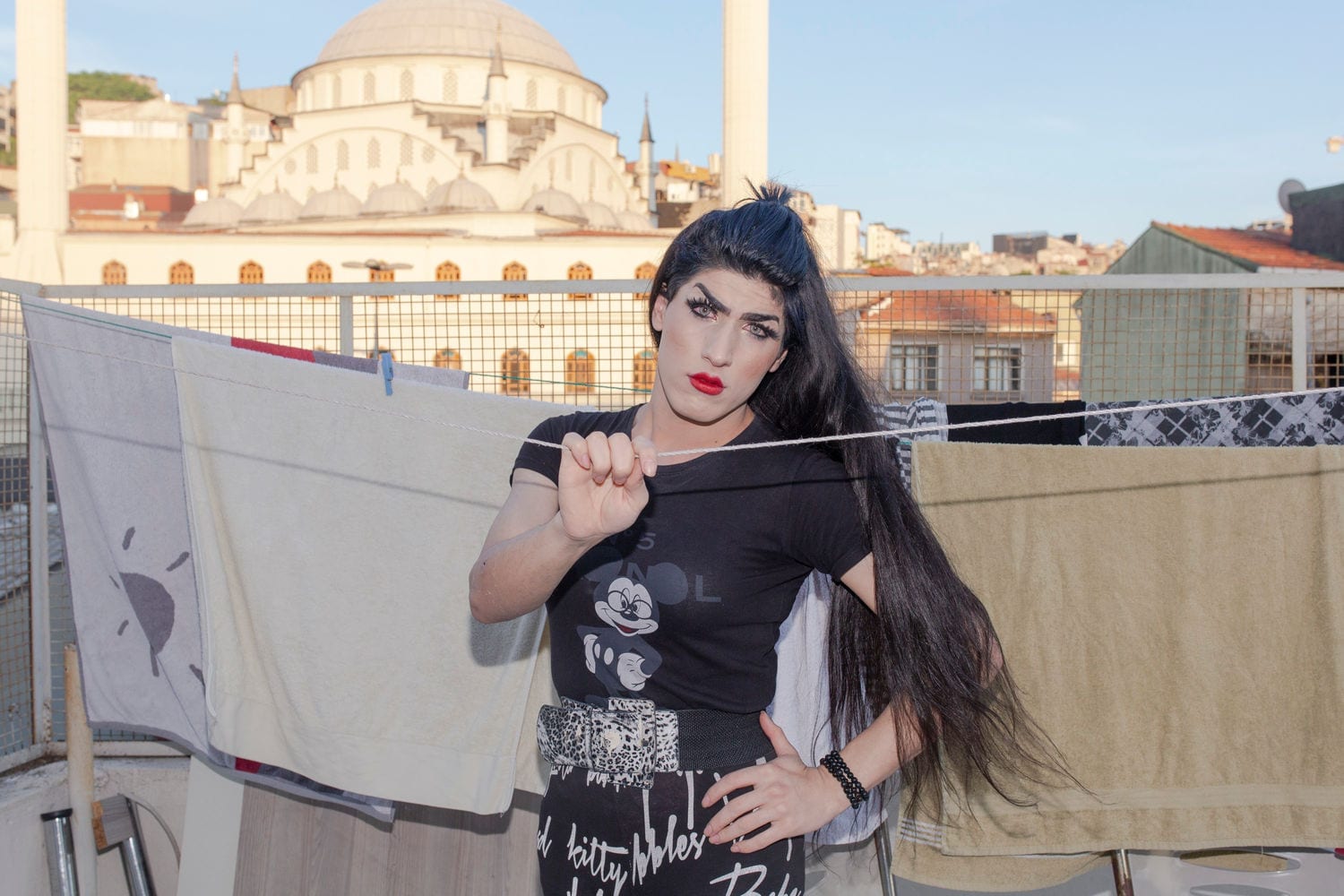
A transgender woman from Syria poses for the camera on the terrace of the guest house, in front of a mosque.
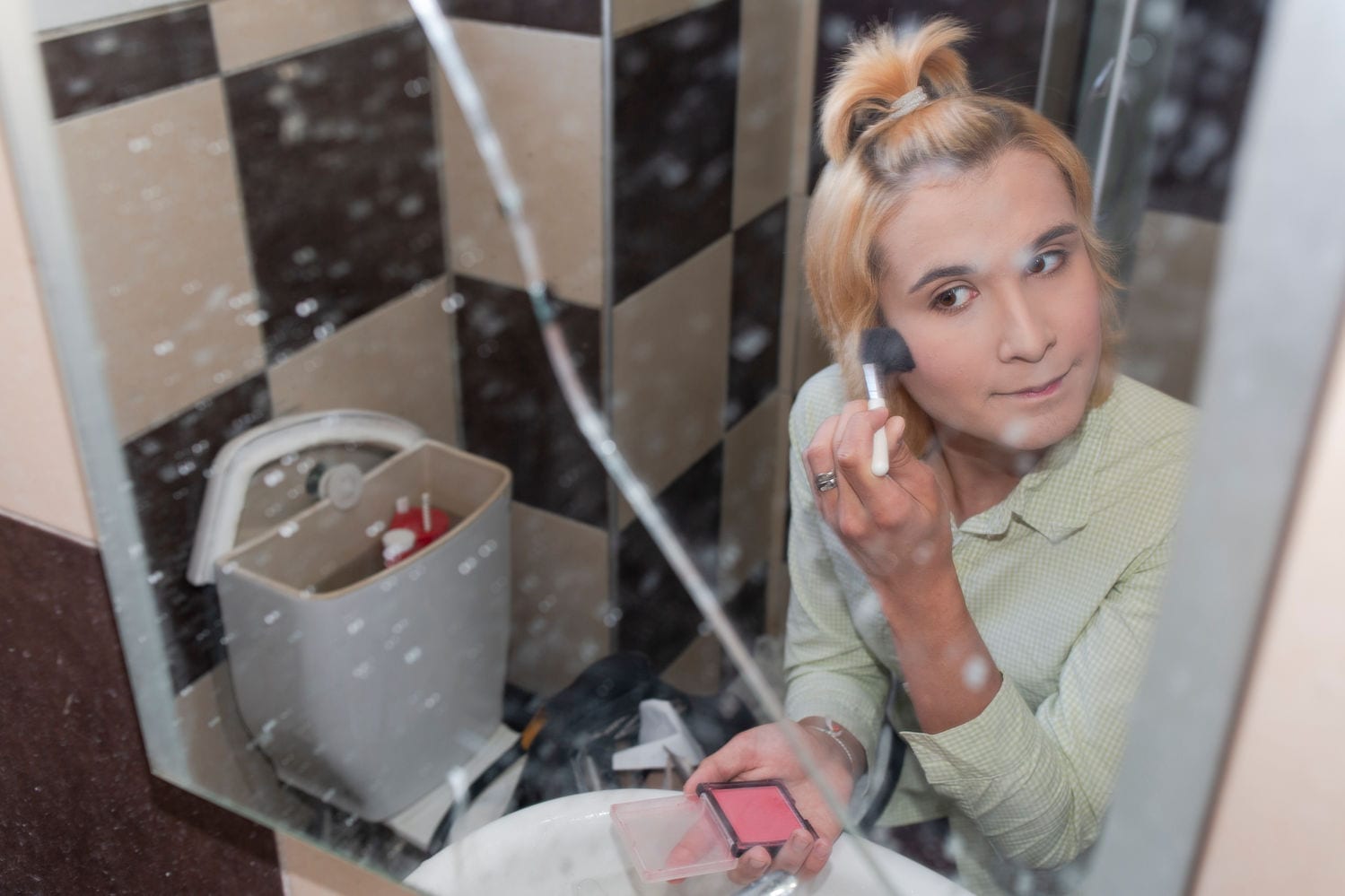
A Turkish transgender woman who lives in the guest house, is doing her make-up in the bathroom.
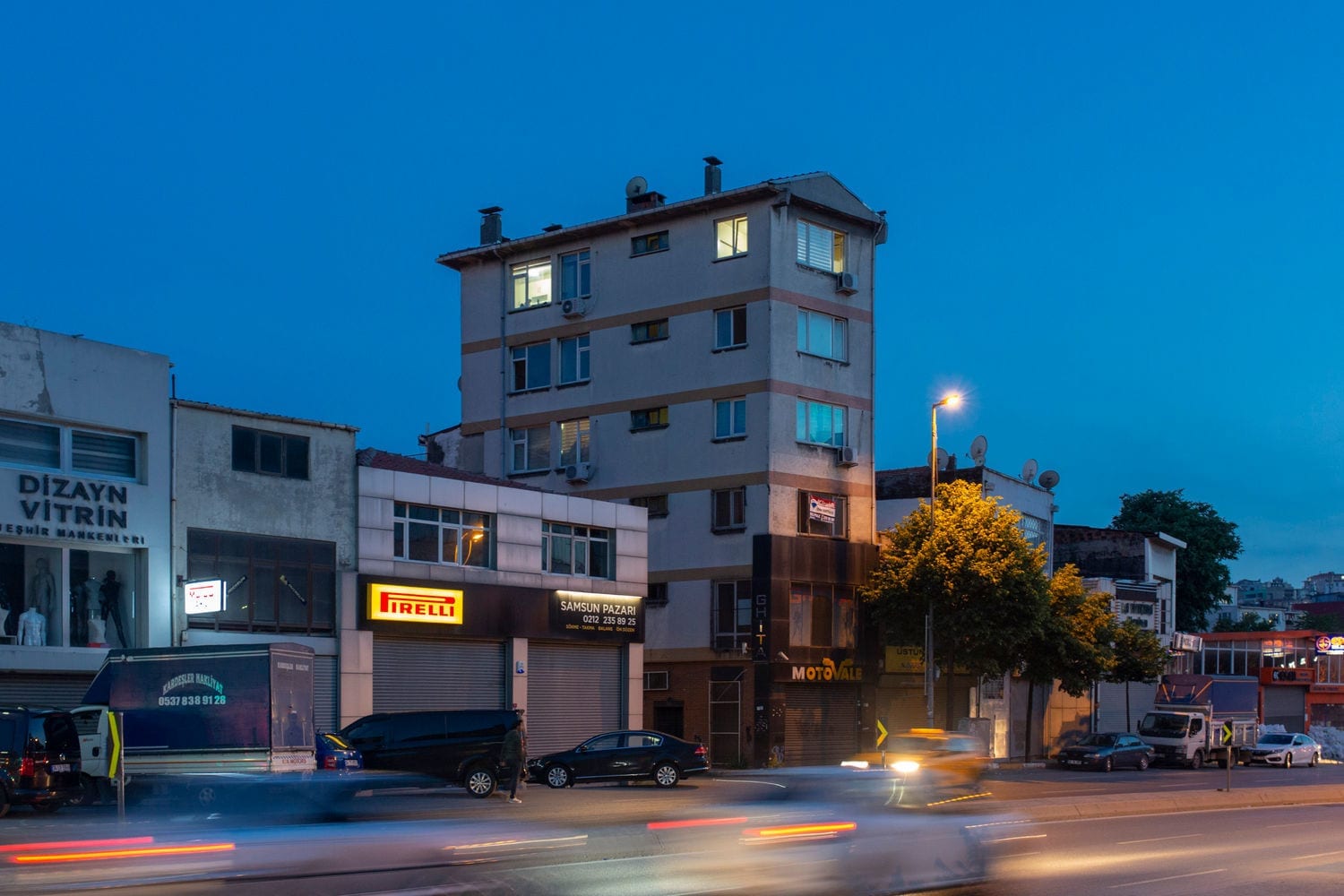
This is the picture of The Trans Guest House from outside. Their kitchen and living room was on the last floor and their bedroom was on the third floor.
LGBTQ+ refugees
It is not known exactly how many LGBTQ+ refugees there are in Europe, but we do know that there are 70 countries where it is illegal to be homosexual, and 11 countries* have the death penalty for this. There are many reasons for LGBTQ+ people to seek asylum elsewhere, but many will not disclose this information through instincts to protect themselves, or they may claim asylum for other reasons, like war or political views. They are an almost invisible category: to be granted asylum based upon their sexual orientation or gender status, LGBTQ+ refugees need to prove to authorities that they are queer or fear persecution, yet a claims’ success is largely dependent on the existence of non-existent evidence.
Many LGBTQ+ asylum seekers have not been able to live openly in their previous countries, which can make it almost impossible to ‘prove’ their sexuality or gender identity. Few EU member states have official guidelines for interviewing LGBTQ+ persons, and asylum officers often have outdated or stereotyped ideas of LGBTQ+ identities. In the Netherlands, organisations such as LGBT Asylum Support offer assistance and advice to this vulnerable group. They report that even here, 85% of LGBTQ+ refugees are victims of discrimination in Dutch asylum seekers centers.**
* Source: www.ilga.org
** Source: https://lgbtasylumsupport.nl/
About the Series
Where do you find refuge when there is no place in society for who you are and who you love as a person? This series shows a sheltered way of living and the impact it has on the road of life. Since the outbreak of the civil war in Syria, millions of Syrians have had to take refuge in Turkey. Among these refugees are LGBTQIA+ people who have been ignored and underserved by the Turkish state. With financial support from abroad, some LGBTQIA+ communities in Turkey opened a guest house to solve accommodation problems that transgender individuals face. This guest house hosted dozens of LGBTQIA+ people from Turkey and LGBTQIA+ refugees for several years. Some people stayed for a few days, and some for years. Considering the homophobic and transphobic pressure already experienced by transgender women in Turkey, it is predictable that transgender refugee women have to deal with not only these pressures but also racist attitudes. As almost all of them are unemployed due to this environment, yet the guest house was very important for them to maintain their lives. Sadly, it closed in summer of 2019 because of the cessation of the financial support, and the inhabitants moved into separate accommodations with the help of social media campaigns. This photography project covers the last few months before the guesthouse closed.
About the photographer
Şener Yılmaz Aslan is doing his photography Master’s degree in Mimar Sinan Fine Arts University, Istanbul. Within his photography
